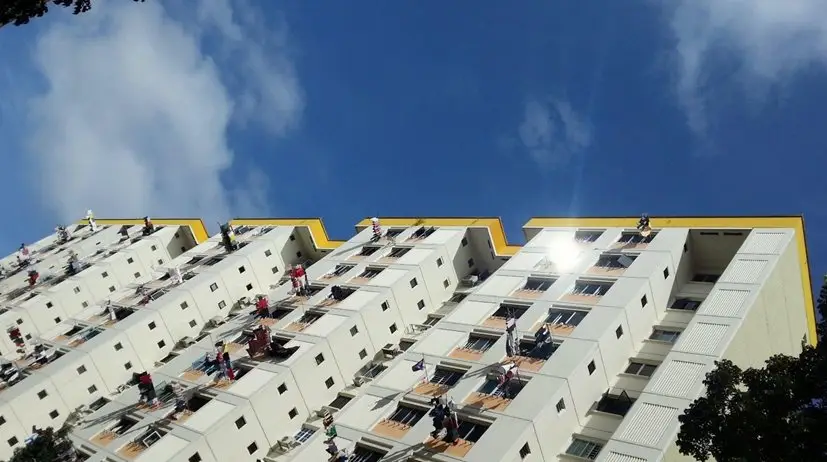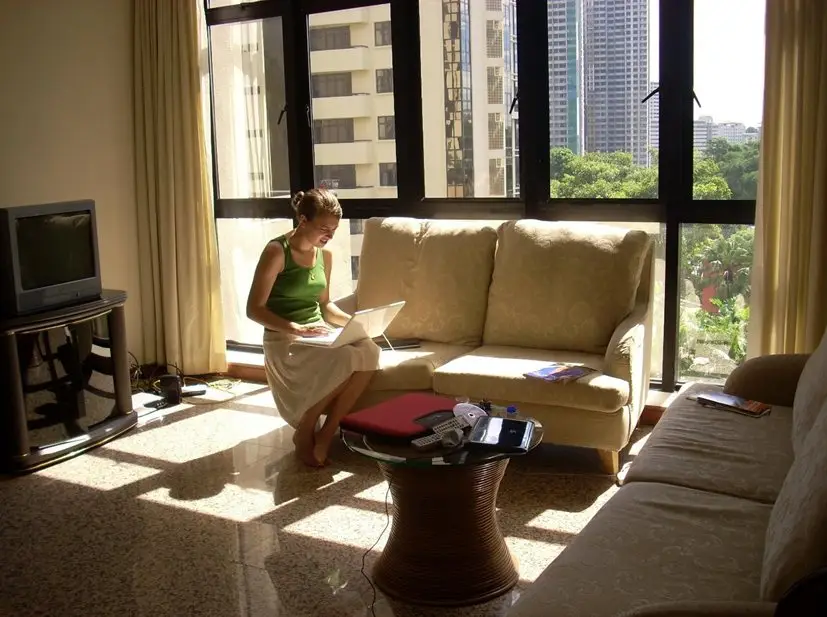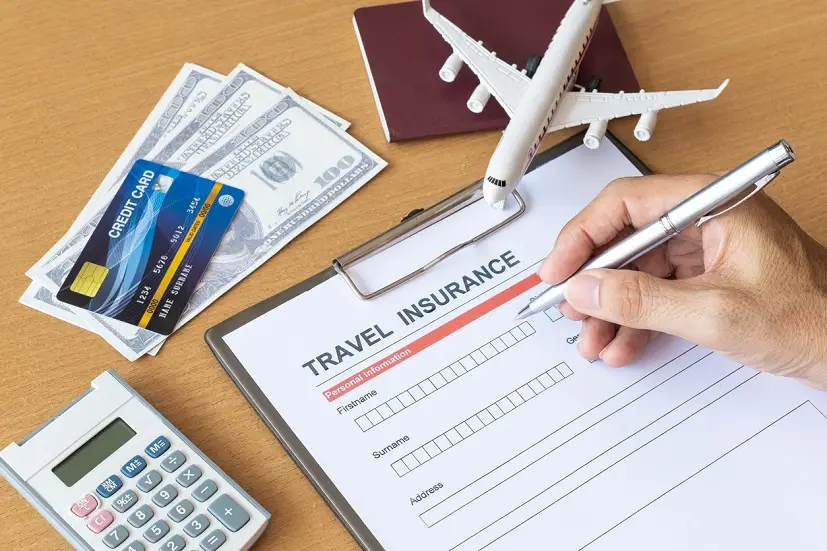Do I Need to Insure My Home in Singapore?

Your home is your castle and your refuge. You put a lot of resources into buying and renovating your home. It makes sense to protect the biggest asset you own, yet many Singaporeans overlook buying home insurance. With HDB flats protected by mandatory fire insurance, and condominiums units insured by the Management Corporation (MC), is home insurance necessary in Singapore?
The short answer is yes. Basic fire insurance and home insurance from the MC only covers the building structure during a fire. Home insurance goes beyond this and covers your renovation and your home contents, plus other unexpected events like floods or break-ins.
What is Home Insurance?
As the name suggests, home insurance is a type of property insurance that covers losses or damage to your residence, including furnishings and other valuable assets you keep at home. Home insurance even covers robberies or accidents that occur within your property.
In case any of these insured events happen, you receive a payout to restore the renovations you made or to replace your personal belongings.
Home insurance is not the same as fire insurance
If you own an HDB flat and have an HDB loan, you’re already covered by the HDB Fire Insurance scheme, which you’re required to renew as long as you have an outstanding loan. According to the HDB, the mandatory fire insurance “covers the cost of reinstating damaged internal structures, fixtures, as well as areas built and provided by HDB.”
Homeowners covered by fire insurance alone can only claim costs incurred in restoring the flat’s physical structures and fixtures to its original condition. It will NOT cover renovation costs or home contents like furniture and personal belongings.
So if you’ve replaced the flooring, added a walk-in closet, or made other renovations, you’d have to do it all over again, at your own cost. You’ll also need to spring up cash to replace your furniture, appliances, and other personal belongings.
On the other hand, home insurance is designed to complement and fill in the gaps left by fire insurance. In addition to restoring your flat’s original physical structure, home insurance lets you make claims if (knock on wood) a fire damages your personal belongings and any renovations or improvements you’ve made to your home. It won’t make restoring your home any less stressful, but at least you don’t have to worry about out-of-pocket costs on top of it.
Other claims you can make under home insurance
Unlike fire insurance, home insurance also covers damages caused by burst pipes or break-ins. The exact coverage depends on the policy, but suffice to say that you’ll be able to pay for renovations costs if they get damaged by events other than a fire, and have funds to replace stolen belongings.
Depending on the insurer, you can get coverage for things like loss of a domestic pet, hotel stays while your renovations are being done, damages to your domestic helper’s belongings, and unauthorised transactions on your stolen ATM card, with limits to how much you can claim under each benefit.
Home insurance may have a personal accident component too. You can make a personal accident claim if you, your spouse or children are involved in an accident at home that causes an injury that results in disability or death.
In general, however, homeowners won’t be compensated for damages related to:
- Damage made during renovations
- Intentional harm to your property or belongings by family members
- General wear and tear
- Damage or theft to unoccupied premises (your home has not been lived in by you or an authorised person for more than 60 days in a row)
Why everyone needs home insurance (even renters)
We’ve talked about how HDB homeowners can benefit from getting home insurance on top of fire insurance. However, any homeowner or renter living in any kind of property can enjoy the same comprehensive coverage.
Home insurance for condominium homeowners
Many condominium homeowners assume that their building’s Management Corporation (MC) insures their unit in case of a fire or other damage to their building. While the MC’s insurance coverage will reinstate the buildings, apartments, and common areas, using the original fixtures provided by the building developer, most MC’s won’t cover your renovation costs. This differs condo to condo, of course, so make sure to check with your MC and if there is coverage, find out how much.
If there’s no or only low coverage for your renovation, make sure to top-up to your renovation amount. Otherwise, if you spent $60,000 renovating your condo and buying furniture, you’ll be facing a huge loss and hefty renovation costs if a fire or water leak in your building destroys your home. This applies even if the damage originated elsewhere in the building and was not your fault. After having spent your hard-earned money renovating your condo, it’s worth protecting it with adequate insurance.
Home insurance for landed property homeowners
Unlike HDB or condominium homeowners, landed property homeowners are directly responsible for their maintaining and protecting their home. You’re also exposed to certain types of home damage that building-dwellers don’t have to worry about. For example, landed properties in these flood-prone areas (Source: CNA) are more likely to get impacted by flash floods caused by heavy downpours. Landed homes are also vulnerable to damage from falling trees and branches.
Given that you’ve spent millions to purchase, renovate, and furnish your home, it makes sense to insure it. Home insurance isn’t expensive and well worth the cost, especially when you consider the expense that will go into reconstructing even the smallest landed home.
Home insurance for renters
Most renters in Singapore assume that their landlord’s home insurance will cover the damage if a fire, flood, or break-in happens at their rented home. However, only the actual structure of the dwelling, and any furniture or appliances that belong to the landlord, will be covered by your landlord’s insurance. If you don’t have your own home insurance policy, any theft or damage made to your clothes, furniture, or electronics need to be paid out of pocket.
Home insurance for renters is incredibly affordable and well worth the cost, especially if you have top-of-the-line appliances, furnished the entire place yourself, or keep other valuable items at home.

How to choose the right home insurance
Before choosing a home insurance plan, spend a few minutes to understand how much coverage you need, to ensure you are neither under-insured nor over-insured.
Know the difference between under-insurance and over-insurance
Home insurance is meant to cover the costs to restore your property to its previous undamaged state, if it was completely destroyed. You should insure your home for its full reinstatement cost - the amount it will take to restore your home’s structure, redo your renovations, replace your damaged furniture, buy new appliances, and purchase new clothes or other belongings.
If you insure your building, renovations, and contents for less than its full reinstatement cost, then you are under-insured. In case the unthinkable happens and your property is completely destroyed, you will only be able to claim for a portion of the full reinstatement cost.
Meanwhile, if you get coverage that is more than your home’s full reinstatement cost, you are over-insured. This means you are paying more than you need, for extra coverage that you cannot claim.
Here’s an example of how under-insurance and over-insurance impacts you:
Let’s say you bought a flat, which you renovated to your taste, with appliances and furniture you love. The cost of restoring it to its original undamaged state is $500,000, while the cost of your belongings is $50,000. These are the amounts that you should insure your home for.
However, you only got a building and renovations cover of $200,000, which is just 40% of the reinstatement cost. In case your home gets totally damaged, you will get the $200,000 you insured your home for, which only covers 40% of the loss. This is considered under-insurance, because you aren’t completely covered for the full cost of restoring your home.
What if you got a building and renovation cover of $600,000? This is considered over-insurance, because you are paying for coverage that exceeds your home’s actual reinstatement cost. Despite insuring it for a higher amount, you will only receive $500,000 if your home is totally damaged, because this is the cost that it takes to restore your home to its undamaged state.
Get an estimate for your building and renovations cover
Most HDB and condo homeowners already have building cover from HDB fire insurance or the building MC. When figuring out the reinstatement cost, you should look at insuring the cost of your home renovations and its contents. This is the cost it will take to redo your renovations and furnish your home back to its original state. Your contractor can give you an estimate for this, or you can obtain an estimate from a qualified quantity surveyor or property valuer.
Landed homeowners will need building coverage on top of renovation cover. Your contractor should be able to advise you on how much it will cost to restore your home’s foundations and structure.
Tenants do not need to worry about building cover, as your landlord would have already purchased this. Only get renovation cover if you have renovated your rented home in any way. You can get an estimate of the reinstatement costs from your contractor.
Estimate your home contents cover
For homeowner-occupiers, estimating your home contents cover is as simple as listing your big-ticket appliances and furnishings, and how much they cost to be replaced. You can also include the cost of your clothes, electronics, musical instruments, and valuable collectibles you keep at home.
If you are a landlord renting out a completely unfurnished flat, you can skip getting home contents cover. However, you should consider insuring your refrigerator, washing machine, oven, or other high-value items you’ve left for your tenant’s convenience.
Tenants renting an entire property should not miss out on home contents insurance, as your landlord’s insurance does not cover your belongings. To estimate your coverage, compile a list of your furniture, appliances, and other high-value items, and their respective costs. Beds, LED TVs, laptops, and bicycles are examples of items that you should add to this list.
What other types of coverage will you need?
A good home insurance plan covers more than just building, renovation, and home contents cover. Consider what else you’d like to insure at your home, and check if the plan can cover them. Here are some examples of additional coverage you can get:
Emergency home assistance: In case your pipes burst or you suddenly have problems with your electrical wiring, emergency home assistance gives you 24-hour access to a qualified repairman at a fee. Some plans, like Income’s Enhanced Home Insurance, take it one step further and offer complimentary home assistance services worth $100 per accident (up to 4 accidents per year).
Emergency cash allowance: A small cash benefit that you can use to get basic items like clothing, if your home is damaged and uninhabitable for a certain period of days.
Family personal accident. In case your spouse or children is disabled or pass away from an injury due to an accident that occurred within your home, family personal accident cover can give you a small payout. Some plans offer a separate payout for medical expenses incurred by accidents that happen at home.
Extra hotel expenses: If your home becomes uninhabitable as a result of a fire or flood, you’ll need to stay at a hotel or some other accommodation while repairs are ongoing. This covers those hotel stays up to a certain daily limit, for a specified time period.
Loss of rental income: In case your property cannot be rented out due to damage by an insured event, this benefit gives you a portion of your rental income for the duration of the repair period, capped at a specific amount.
Loss of domestic pet: With this benefit, you receive a payout if your beloved pet dog or cat gets stolen or accidentally dies while in your home.
Family worldwide liability: If you or your family member becomes legally responsible for accidentally injuring someone or damaging their property, family liability cover will cover the legal costs and the amount awarded against you or your family member by the court in Singapore.
Choose flexible home insurance that meets all your needs
Many homeowners’ insurance plans come in fixed packages, often based on the size of your home or separated into pricing tiers. Although a package seems simpler to understand, you run the risk of being under-insured or over-insured if you go by the default coverage limits.
On the other hand, a flexible policy like Income’s Enhanced Home Insurance lets homeowners and renters specify their desired level of coverage for renovation and home contents. Premiums will increase or decrease according to the amount insured, so you’ll only pay for the coverage you need. You also have the option to top-up with additional coverage that you need on top of your existing plan.
Dealing with a damaged home is incredibly stressful, but it certainly helps to get benefits that support your immediate and long-term needs. Enhanced Home Insurance comes with 17 additional benefits at no extra cost, which include emergency cash, allowances for hotel stays, and loss of rental income for landlords.
Protect your safe haven
Your home is more than your biggest asset. It is a safe haven where you and your family can recharge, relax, and build memories together.
Complement your existing HDB fire insurance or condo’s MC insurance with Income’s Enhanced Home Insurance, which covers loss or damage to your belongings in case of a fire, flood, or break-in. You have the flexibility to determine your coverage, so you only pay for what you need. Need help deciding how much coverage you need? Speak to one of our friendly advisors for expert advice on setting your coverage limits.
This content will be removed at a later sprint
This article is meant purely for informational purposes and does not constitute an offer, recommendation, solicitation or advise to buy or sell any product(s). It should not be relied upon as financial advice. The precise terms, conditions and exclusions of any Income Insurance products mentioned are specified in their respective policy contracts. Please seek independent financial advice before making any decision.
These policies are protected under the Policy Owners’ Protection Scheme which is administered by the Singapore Deposit Insurance Corporation (SDIC). Coverage for your policy is automatic and no further action is required from you. For more information on the types of benefits that are covered under the scheme as well as the limits of coverage, where applicable, please contact Income Insurance or visit the GIA/LIA or SDIC websites (www.gia.org.sg or www.lia.org.sg or www.sdic.org.sg).
This advertisement has not been reviewed by the Monetary Authority of Singapore.
Related Articles




